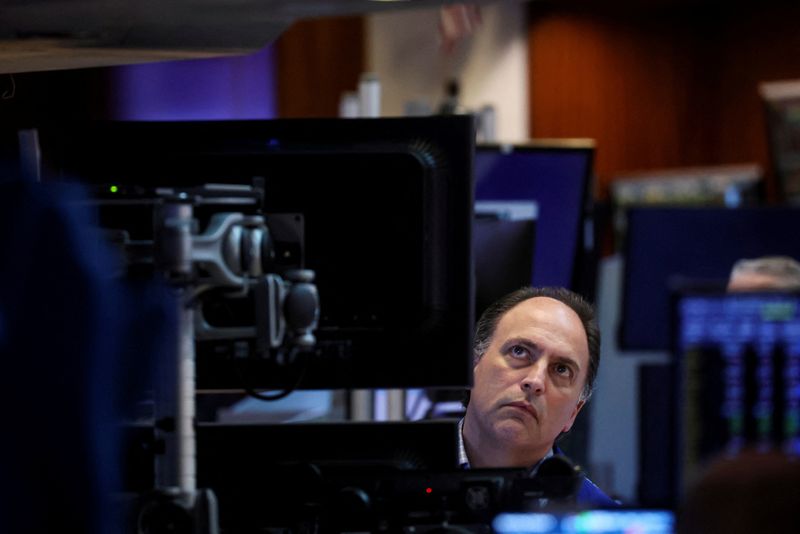Bitcoin price today: gains to $120k, near record high on U.S. regulatory cheer
By Geoffrey Smith
Investing.com -- China delays the publication of third-quarter GDP data, in a move that may save Xi Jinping embarrassment as he heads toward a third term in office. The pound steadies and Gilts soar as almost all of the government's ill-fated mini-budget is unceremoniously scrapped. Stocks are set to open higher, while Bank of America (NYSE:BAC) reports earnings before the open. Russia continues its bombardment of civilian targets in Ukraine with drones and missiles, and oil recovers after dipping on Xi's speech, which re-committed to the Zero-Covid policy. Here's what you need to know in financial markets on Monday, 17th October.
1. China postpones 3Q GDP data as Xi awaits coronation
China abruptly postponed, without explanation, the publication of third-quarter economic growth figures a day before they were due to be released.
The move came on the same day that President Xi Jinping formally opened a Communist Party convention that is set to break with the last 30 years of Chinese tradition by granting Xi another term in office, a move that western analysts say may deepen the growing divide between China and the West.
In his opening speech, Xi reaffirmed his commitment to the Covid-zero policy that has caused repeated local shutdowns of cities and provinces across the world’s second-largest economy this year, and which have been largely responsible for the country missing its official growth target by an embarrassing margin for Beijing’s central planners.
Iron ore Futures fell sharply on the news, but Chinese stock markets were mixed and the yuan was broadly unchanged.
2 Pound steadies, Gilts surge as Hunt scraps the Truss/Kwarteng budget
The U.K.’s new Chancellor of the Exchequer Jeremy Hunt announced the abandonment of nearly all of the tax and spending measures proposed by his ill-fated predecessor Kwasi Kwarteng, in a desperate bid to regain market confidence and reverse a recent rise in government bond yields.
Hunt’s measures, flagged in rough outline over the weekend, scrap planned tax cuts, reinstate the tax increases that had been scheduled and prepared the ground for cuts in public spending (at least in real terms) in order to bring the budget back closer to balance. Kwarteng’s plans would have created a 72 billion pound funding gap by 2027, according to unpublished preliminary estimates from the Office for Budget Responsibility cited by The Times.
U.K. government bonds responded favorably in anticipation of the statement, with the 10-Year and 30-Year Gilt yields falling more than 30 basis points each.
3 Stocks set to open higher as Fed's George warns of moving too fast; Empire State Manufacturing index due
U.S. stocks are set to open the week higher, supported by a set of bank earnings last week that were broadly stronger than expected and contained no ugly surprises. Bank of America and Bank of New York Mellon (NYSE:BK) more or less round off the banking sector’s contribution to earnings season before the open.
By 06:30 ET (10:30 GMT), Dow Jones futures were up 347 points, or 1.2%, while S&P 500 futures were up 1.4% and Nasdaq 100 futures were up 1.5%.
The mood is being helped by comments from Kansas City Fed chief Esther George over the weekend that again warned of the dangers of raising interest rates too fast. George’s concerns have been a rare instance of dovishness at a time when most Fed officials are still fretting about being behind the curve with inflation.
The New York Fed’s Empire State Manufacturing Index, due at 08:30 ET, may add some context to George’s words.
4. Russia pounds Ukraine with drone strikes
Russia continues to pound Ukrainian civilian infrastructure with drone strikes, in what it continues to style as retaliation for the Ukrainian attack on the bridge linking Crimea with mainland Russia a week ago.
The latest attacks, which targeted export terminals for agricultural products among other things, were delivered largely by Iranian-made Shahed-136 ‘kamikaze’ drones, a fact that one western diplomat said was unlikely to speed the lifting of sanctions on Iran and the restoration of the UN-backed agreement on its nuclear program.
Ukraine had also struck back over the weekend with attacks on infrastructure in the Russian border city of Belgorod.
Over the weekend, Elon Musk had reversed course and said SpaceX would after all continue to fund the use of the Starlink satellite-powered Internet service in Ukraine, albeit without much grace.
5. Oil hits one-week low
Xi Jinping’s speech, which gave little hope for a sustained recovery in Chinese demand, drove crude oil prices to new lows for the week, before they retraced their losses during the European morning as the U.K.’s new measures supported risk appetite.
By 6:30 ET, U.S. crude prices were up 0.5% at $85.12 a barrel, while Brent futures were up 0.5% at $92.12 a barrel.
On Friday, CFTC data had shown another modest uptick in net speculative long positions, albeit they remain near their lowest in six years, an illustration of the loss of liquidity from a market that has shown extreme volatility this year as financial conditions have tightened.
